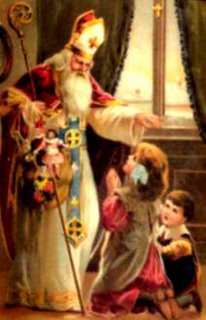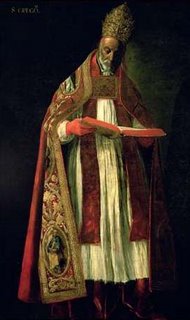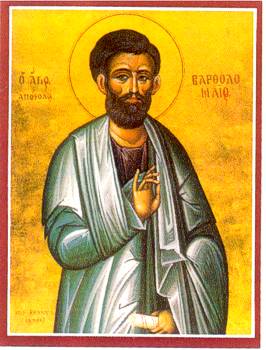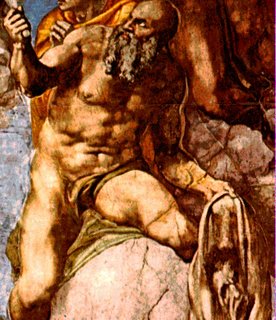
There have been many legends concerning St. Nicholas but exactly who is Nicholas?
Nicholas, was born into a relatively prosperous family around the third century, in the town of Patara, Turkey. He was fortunate in that both of his parents were Christians and passed on their Faith to their son, before they died from an epidemic which had affected the whole region.
Being that Nicholas parents were so very devout upon receiving his inheritance, the young Nicholas gave all his wealth to the poor. He had taken Jesus Gospel message of selling all you have to aid the poor seriously and so he did. For the young Nicholas did not hanker after 'worldly' goods, for he had seen with the death of his own parents, that life was short so be generous now and do not hesitate to give.
But Nicholas gave more than his money; he also dedicated his life to serving the poor, visiting the sick and lonely. His love of God shone through everything he did and his cheerful exterior hid the interior penances and sacrifices he made for the salvation of souls.
At a very young age Nicholas was ordained a Bishop in the region of Myra, but though he gained this honour at a young age, Nicholas kept his humility and meekness of spirit to the forefront, as he continued to live a simple life of helping his flock.
And through the example of Jesus, Bishop Nicholas shepherded his people well, even unto experiencing miracles. But also like Jesus Bishop Nicholas was also subjected to imprisonment and various humiliations under the evil leadership of Emperor Diocletian.
Bishop Nicholas was released from imprisonment as he was able to attend the Council of Nicaea in the year 325 AD, though some historians dispute this.
But what we do know of St. Nicholas is that he was a kind, gentle and generous man who tended to the welfare of the people in his region, while always keeping a gentle and humble heart.
There have been many stories attributed to St. Nicholas one of these being that the Bishop upon hearing that a father was destitute and was trying to sell his own daughters into slavery. Bishop Nicholas very quickly intervened and saved both father and daughters from a catastrophe, for in those times, it was necessary for each daughter to have a dowry. The poor father had no money, but through the compassionate intervention of Bishop Nicholas, the home of this man was kept safe, as at different times bags of gold would appear at this fathers home which supplied his daughters with the necessary dowry.
Another story is that of three students who upon traveling in a dangerous region were murdered, Bishop Nicholas saw what had happened in a dream and was horrified! As he happened to be close by the Bishop went immediately to the murdered students and upon praying over their dead bodies, all three students rose from the dead.
There is much more to Saint Nicholas than his giving presents to the poor, for Bishop Nicholas gave them a treasure greater than any present, he gave them his love.
And it is this love that should be the real lesson of Christmas, in that St. Nicholas gave of himself to all he met in living out the Gospel message of Jesus Christ. It is through the example of St. Nicholas that we learn Christmas is not about buying the best; it is about giving the best of yourself to benefit others in a spirit of love and compassion.
Peace of Christ
Copyright © 2006 Marie Smith. All rights reserved.





